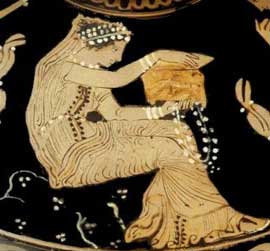 The purpose of this blog is to serve as a journal for my creative experimentations and expressions. I have written essays, poems, and short stories over the years. I have exhibited my photography and once in a while my artwork. However, one mode of expression that does not get much attention is music. The reason for this is simple: growing up I never had the opportunity to learn a musical instrument or was given the chance to sing.
The purpose of this blog is to serve as a journal for my creative experimentations and expressions. I have written essays, poems, and short stories over the years. I have exhibited my photography and once in a while my artwork. However, one mode of expression that does not get much attention is music. The reason for this is simple: growing up I never had the opportunity to learn a musical instrument or was given the chance to sing.
As an adult who is part of a faith community I get to engage in congregational singing. Furthermore, in the last year or so, I have been asked on a few occasions to play my darbuka or djembe drums at informal worship gatherings.
Curious note: I have no problem calling myself a writer or an artist or a photographer; however, I would never ever call myself a musician or even label myself as “musical”. Maybe it is because I don’t consider myself a “good “musician. After all, I have had no training at all in music. But, then, I am not an outstanding writer or visual artist either, yet that does not stop me from calling myself a writer or an artist.
So what’s the deal? I think it has to do with a feeling of empowerment. When I write I know it is not great writing, but I feel like I have said what I wanted to say. That’s power. The same could be said for my photography and artwork. It may not be particularly well-rendered compositions, but I strive to convey powerful messages in those images and am usually satisfied.
I am thinking that perhaps my reluctance to call myself musical comes from a feeling of dis-empowerment, a sense of being an outsider. Let me give you an example of what I’m talking about:
I have a frame drum which is a simple wooden ring overstretched with a leather skin. (Think of a tambourine without the metal jangles). A frame drum is typically played by holding it and tapping with ones fingers. However, one can also beat it with a stick. I decided I wanted to try playing it with a stick. So yesterday I went down to a local “big box “music store franchise to get a beater. I went into the percussion department and asked for a “soft-headed beater for playing a frame drum”. The man at the counter pointed to an aisle and said with a note of condescension in his voice “you mean a mallet.” (No, I meant “beater” since that is what I heard it being called) Anyway, I went to where he pointed and discovered that they wanted over $30 for a pair of them. I asked if they were sold singly. Again, I received a slightly snarky response: “they only come in pairs.” If I had turned around, I bet I would have seen him rolling his eyes. I pointed out to him that I was playing a frame drum which only requires one mallet since you need to hold the drum with the other hand. His response: “well, then, I guess you’ll have an extra one”. My feeling as I left was that he thought I was an idiot who did not know what I was looking for. I then went down the street to a competing music store and got pretty much the same response from the guy who worked at that store.
In both cases, the condescension I felt coming from these men made me feel like I didn’t belong there– like I was an outsider. I don’t know if it is because they somehow knew I was not well-educated in percussion instruments, or if they didn’t think a frame drum was actually a real instrument, or if it was because I am an older woman and not a young man. If you go to Wikipedia and search for “list of famous percussionists” you will get a list of 100 percussionists of which only five are female. This gives me an idea that it may be the latter case. This is ironic since scholars assert that the frame drum is an ancient musical instrument originally created by women from their grain sieves. These women from long-ago expressed themselves without any hesitation. Consider this passage from the Hebrew scriptures:
And Miriam the prophetess, the sister of Aaron, took a timbrel in her hand; and all the women went out after her with timbrels and with dances. And Miriam answered them, Sing ye to the Lord…. Exodus 15:20-21a (A timbrel is a type of frame drum)
Miriam, a woman, a sacred seer, singing to God– no fear, not marginalized, with complete boldness– was totally empowered.
My point in sharing this story is to emphasize that you do not create –whether through writing or rendering or making music– to get yourself a standing ovation. You do not do this to claim accolades. You do it to reclaim your personal power.
And if you have such power propelling your creative practice, the results cannot be anything but great.
— ljgloyd (c) 2016

My frame drum
Postscript: I went to my local artist supply store, bought about six dollars worth of materials, and made my own darn beater. My ancient foremothers would have been proud.
Another postscript: Not all music stores are like this. At the small sole proprietorship drum store I wrote about in the previous post, the experience could not have been more positive.
Image: “Miriam” by Anselm Feuerbach
https://dailypost.wordpress.com/prompts/ovation/







